Churches' document addresses real issues!!
The churches seem to have infuriated some people because they have supported the land reform programme and did not mention or support the illegal and internationally condemned but United States and British-promoted regime change policy. This is unfortunate because the document titled The Zimbabwe We Want: Towards a National Vision For Zimbabwe contains pertinent issues that have caused the polarisation of our nation and the subsequent problems that we face. The churches have not shied away from tackling the aggregate challenges that have besieged Zimbabwe. More importantly, the church advances a very important factor that is contributing immensely to the disintegration of Zimbabwe as a nation – morality. Anyone who is still a decent human being should take heed of the challenge by the churches to examine their values because their erosion destroys a nation. Indeed we have seen, and the church rightly points so, the erosion of our values of ubuntu. We are nurturing some corrupt politicians, killers, thieves, liars, rapists, corporate looters, etc. We have lost the values that are the basic requisite for building a viable nation. No amount of a democratic constitution or social institutions would be functional if we do not have people driven by such values as trust, loyalty, tolerance and respect for human life.While we have had differences as a nation, it is the lack or even the adoption of these negative values that has and still exacerbates our problems as a nation. The church rightly implores us to come together as children of the same house. That of course, does not mean been homogenous, as the churches note, but unite in diversity. This is a strength and not a weakness.The call by the churches for national reconciliation is very pertinent. There are a lot of genuinely aggrieved Zimbabweans such as the Gukurahundi victims in Matabeleland and Midlands. The churches rightly point out that the silence of the people does not indicate that they have forgiven and forgotten. They are silently grieving and indeed “genuine reconciliation [would be]…possible only when the truth has been told, confession made and forgiveness received”. Gukurahundi marked a lingering dark patch in our history and it is one of the key challenges that the nation has to address as part of our rebirth.The churches document inadvertently comes at an opportune for the government and it would use it as proof that they are responsive to issues of national concern. That would be an advantageous step to take, which could be likened to the benefit the land reform gave to Zanu PF. It does not matter that the Movement for Democratic Change has articulated some of these issues; the government has found it easy to accept the document because it believed that it was presented by a supposedly neutral stakeholder and also that it addresses the key issues of concern to Zimbabweans. MDC could have easily produced such a document but the problem is that it would be premised on regime change and flawed scenarios.One hopes that MDC does not make another grave era - as in opposing land reform – but instead buy into this document and prevent the government from seeming to be the one solely embracing it. If that happens, the government could use the document as a strategic election campaign platform. It would use it as evidence to demonstrate how MDC steadfastly refuses, time and again, to participate in nation building. Besides, it is also easy to advance an argument that, since the document dwells so much on the land reform, MDC is once again stalling because it is opposed to the land reform. The government could also match their other current efforts such as the anti-corruption drive and land reform to point as evidence that they are, in fact, in the process of dealing with the many issues contained in the document. Identifying with issues in the document would suggest that the government indeed understands the issues of concern to the people.Zanu–PF Information and Publicity Secretary Dr Nathan Shamuyarira has already been reported by this paper saying that his party is taking steps to limit to two, the presidential terms as well as harmonise the presidential and parliamentary elections. The fact that the government saw mileage in that document influenced its acceptance at once. The issues that are outlined in that document are the real concerns people are crying about and those that have hurt our nation. The document still has its weaknesses. It is sad that the churches deny that there are economic sanctions targeted against the country as opposed to the so-called individuals “targeted sanctions”. The churches also make a mistaken assumption that just because they are the churches they would be able to influence the Western governments beholden to suspiciously racist motives and neo-liberal capitalists. Land is the basis of capitalism and it would be difficult, if not impossible for these Western countries to accept a settlement that incorporates comprehensive land reforms. They have said it several times that they need Zimbabwe to move back to pre-2000 land ownership structure, which is totally unacceptable. Yes, we do not need to take possession of all the land from our fellow white brothers (and not discriminate them on the mere colour of their skin), but we still need to redistribute land for social justice purposes. There is nothing amiss about that except for those unjust people who do not believe that our disadvantaged, yet precious landless mothers, fathers, brothers and sisters deserve to perpetually live in poverty. The churches talk about building bridges with the “international community”. This is confusing because Zimbabwe already enjoys good relations with the international community. The churches must not incorporate the imperialist language of viewing the “international community” as the West. The danger is that the moment we start using the language of the “international community” then the church would defeat their otherwise progressive document. But indeed, we need to have good relations with the West but these relations must be based on mutual respect and respect for our sovereignty – not to undermine us through attempts to support the illegal regime change policy.Kuthula Matshazi (kuthulamatshazi@yahoo.co.uk) is a Zimbabwean journalist writing from Toronto, Canada.
















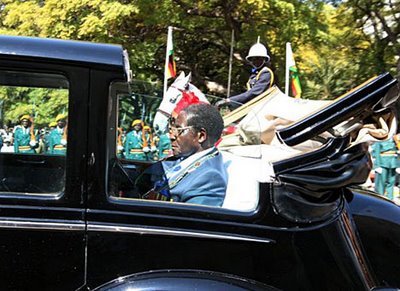







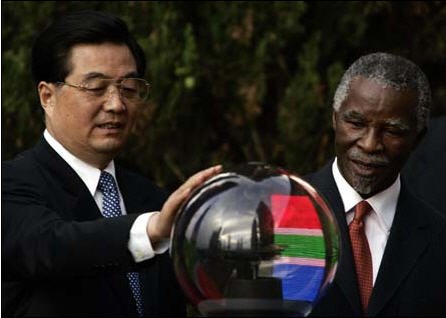





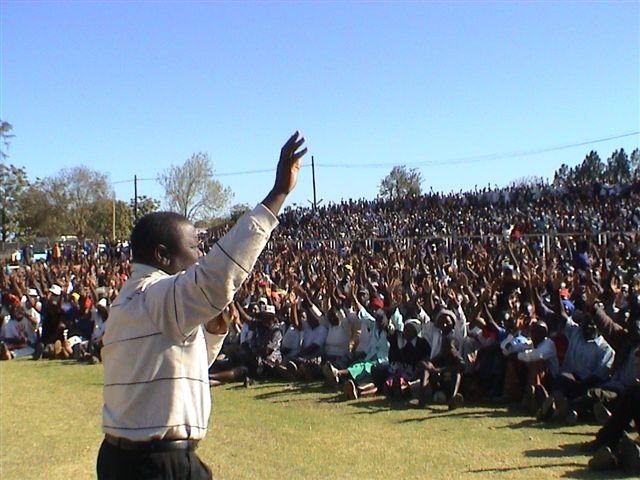




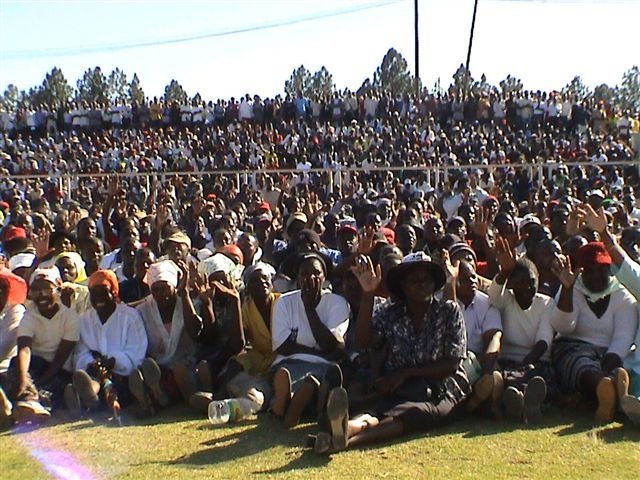







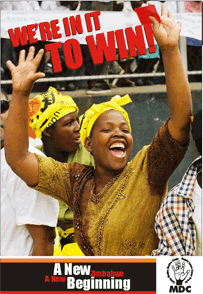








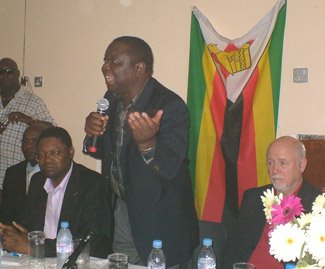











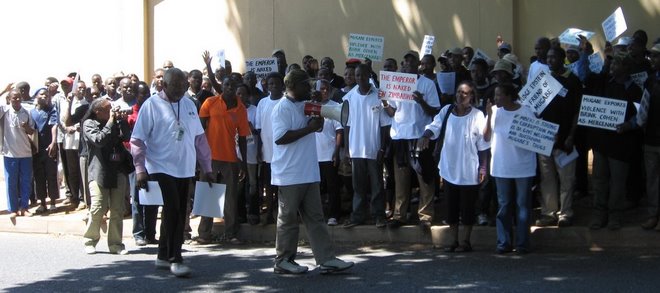
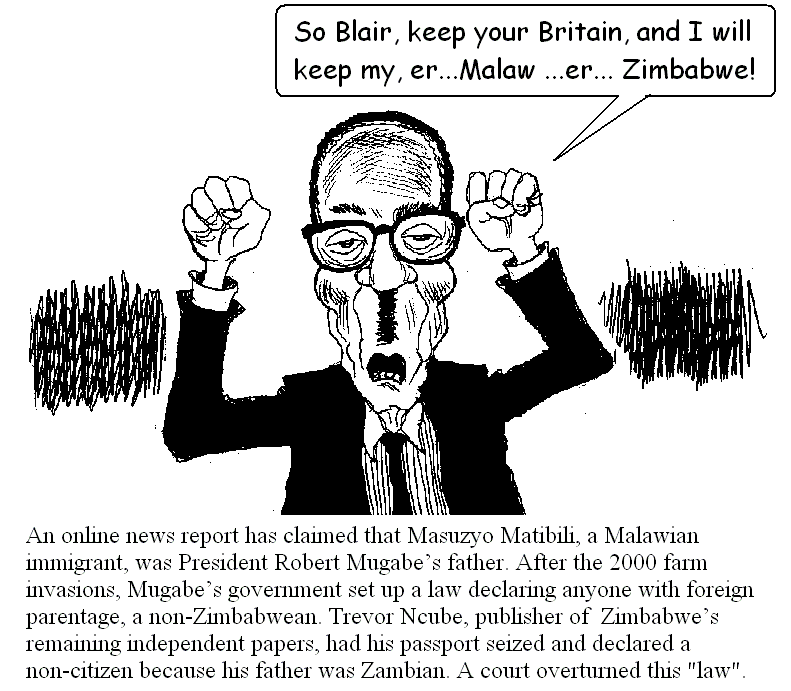







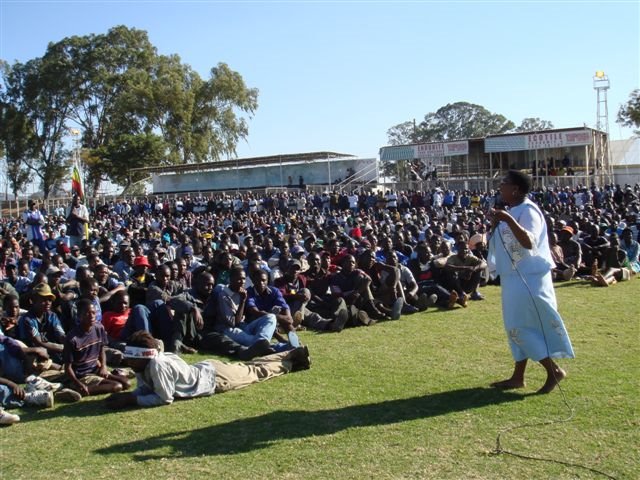






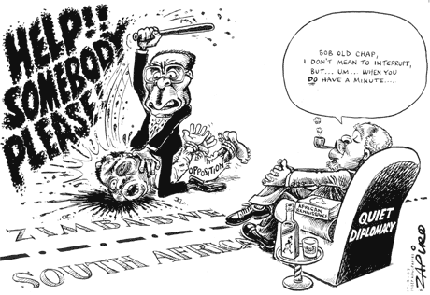

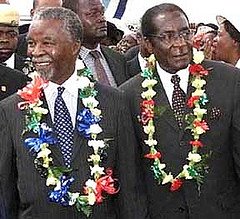
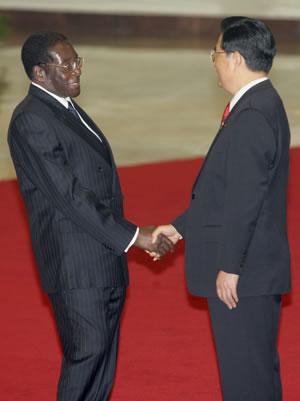





No comments:
Post a Comment